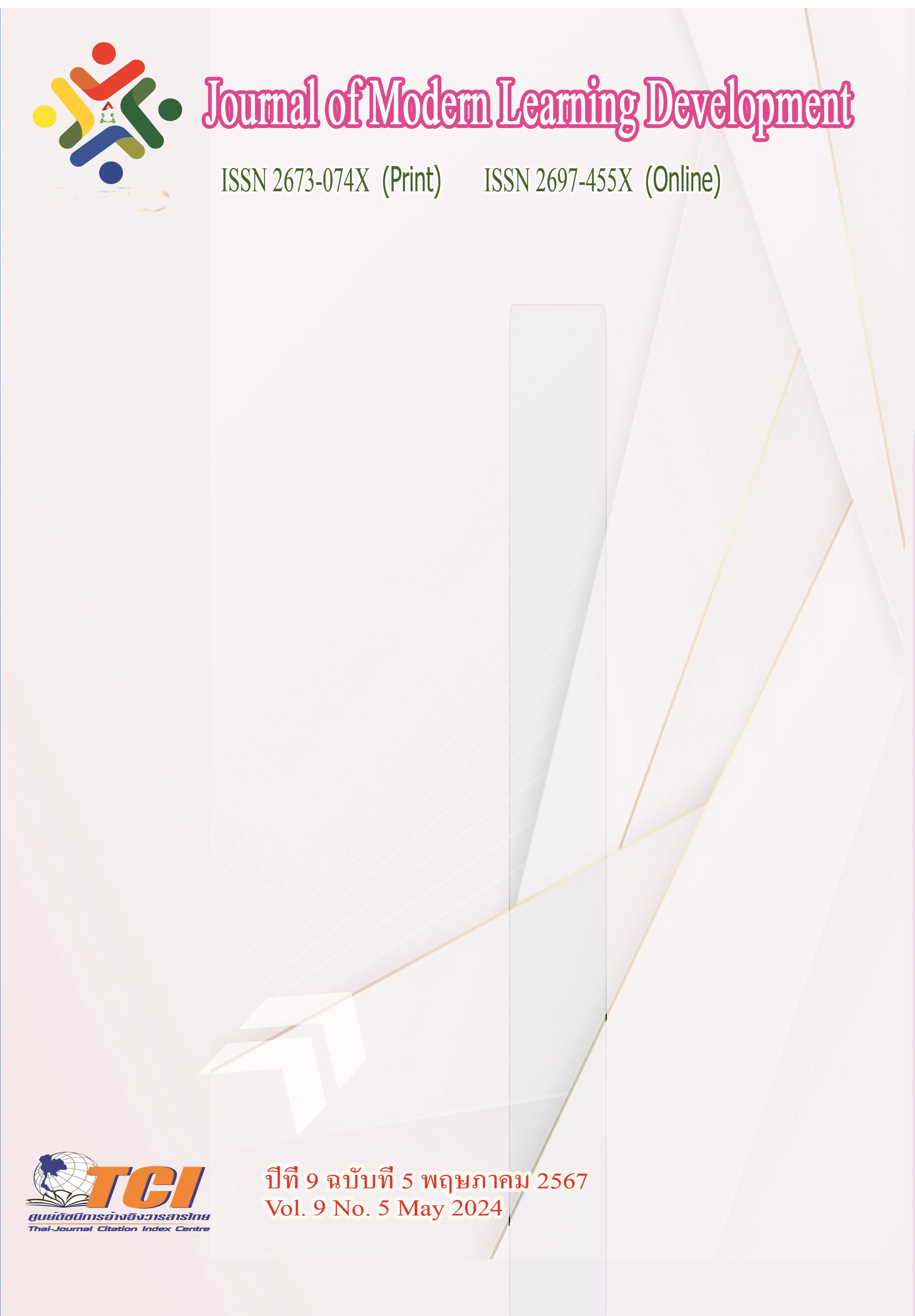Digital Citizenship in Thailand
Main Article Content
Abstract
This article aims to present the concept of digital citizenship and guidelines for digital citizenship in Thailand. Digital citizenship is an important skill today because digital technology has developed rapidly, digital technology in almost every aspect of life. The important elements of digital citizenship in Thailand are important that Thai people should know to be able to live life in a timely and safe manner. Therefore, relevant agencies should organize learning or develop digital citizenship skills for the new generation of citizens to be able to access, know and not become a tool or be led in the wrong way and have the skills necessary to live life appropriately in the digital age.
Article Details
References
กระทรวงดิจิทัลเพื่อเศรษฐกิจและสังคม. (2560). รายงานผลการสำรวจพฤติกรรมผู้ใช้อินเทอร์เน็ตในประเทศ ไทย ปี 2560. กรุงเทพมหานคร: สำนักยุทธศาสตร์ สำนักงานพัฒนาธุรกรรมทางอิเล็กทรอนิกส์ (องค์การมหาชน).
ชวนนท์ จันทร์สุข และคณะ. (2560). ความสามารถในการบริหารเวลาของนักศึกษาพยาบาล วิทยาลัยพยาบาลบรมราชชนนี ชัยนาท [เอกสารนำเสนอ]. การประชุมวิชาการ ระดับชาติ ครั้งที่ 14 . 7-8 ธันวาคม 2560. มหาวิทยาลัยเกษตรศาสตร์ วิทยาเขตกำแพงแสน นครปฐม, ประเทศไทย.
มนต์รัตน์ แก้วเกิด และคณะ (2564). ความต้องการจำเป็นในการบริหารงานวิชาการของโรงเรียนมัธยมศึกษาตามแนวคิดความเป็นพลเมืองดิจิทัล. วารสารมนุษยศาสตร์และสังคมศาสตร์ มหาวิทยาลัยราชภัฏพิบูลสงคราม. 15 (1), 66 – 78.
ล้วน สายยศ และอังคณา สายยศ. (2543). เทคนิคการวิจัยทางการศึกษา (พิมพ์ครั้งที่ 3). สุวีริยาสาส์น.
ล้วน สายยศ และอังคณา สายยศ. (2547). การวัดด้านจิตพิสัย สุวีริยาสาส์น.
วรพจน์ วงศ์กิจรุ่งเรือง. (2561). คู่มือพลเมืองดิจิทัล. กรุงเทพมหานคร: สำนักงานส่งเสริมเศรษฐกิจดิจิทัล กระทรวงดิจิทัลเพื่อเศรษฐกิจและสังคม.
วรลักษณ์ สงวนแก้ว. (2558). Digital Citizens: พลเมืองดิจิทัล. ออนไลน์. สืบค้นเมื่อ 20 กรกฎาคม 2565. แหล่งที่มา https://www.stou.ac.th/study/ sumrit/1-59(500)/page2-1-59(500).html.
วัญญา วิศาลาภรณ์. (2548). การสร้างแบบทดสอบ. จุฬาลงกรณ์มหาวิทยาลัย.
สมนึก ภัททิยธนี. (2541). การวัดผลการศึกษา. ประสานการพิมพ์.
สำนักงานพัฒนาธุรกรรมอิเล็กทรอนิกส์ (ETDA). (2564). ส่งต่อความรู้ สู่พลเมืองดิจิทัล. ออนไลน์. สืบค้นเมื่อ 5 มกราคม 2566. แหล่งที่มา: https://www.etda.or.th/th/Our-Service/edc.aspx.
Bernardo Tabuenca et al. (2022). Mind the gap: smoothing the transition to higher education fostering time management skills. Universal Access in the Information Society, 2022 (21), 367-379.
Hafiz Muhammad Ather Khan. (2016). Exploring Relationship of Time Management with Teachers’Performance. Bulletin of Education and Research, 38 (2), 249-263.
Hair, J. et al. (2010). Multivariate data analysis (7th ed.). Upper saddleRiver, New Jersey : PearsonEducation International.
Mehdi Beyramijam. (2020). Work-Family Conflict among Iranian Emergency Medical.
Mossberger, Karen. (2008). Toward digital citizenship: Addressing inequality in the information age. In Routledge Handbook of Internet Politics. Edited by Andrew Chadwick& Philip N. Howard. New York: Routledge.
Razali et al. (2017). The Impact of Time Management on Students’ Academic Achievement. Journal of Physics : Conference Series, 995 (2018), 1-7.
Ribble, M. (2015). Digital Citizenship in Schools: Nine Elements All Students Should Know. (3rd ed.). Washington DC: International Society for Technology in Education.
Ribble, Mike S.; Bailey, Gerald D.; Ross, Tweed W. 2004. Digital Citizenship: Addressing Appropriate Technology Behavior. Learning & Leading with Technology, v32 n1 p6-9, 11.
Richelle V. Adams et al. (2019). Impact of Time Management Behaviors on Undergraduate Engineering Students’Performance. SAGE Publications, pp.199-211.
UNESCO. (2017). Digital Citizenship Education in Asia-Pacific Outcome Document. Bangkok: UNESCO Asia and Pacific Regional Bureau for Education.


